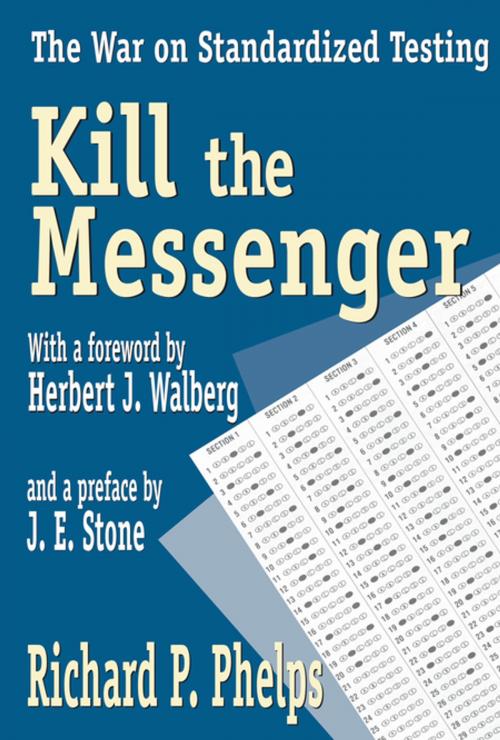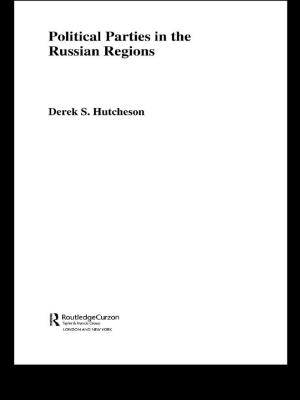Kill the Messenger
The War on Standardized Testing
Nonfiction, Reference & Language, Education & Teaching, Educational Theory, Testing & Measurement| Author: | Richard Phelps | ISBN: | 9781351510189 |
| Publisher: | Taylor and Francis | Publication: | September 4, 2017 |
| Imprint: | Routledge | Language: | English |
| Author: | Richard Phelps |
| ISBN: | 9781351510189 |
| Publisher: | Taylor and Francis |
| Publication: | September 4, 2017 |
| Imprint: | Routledge |
| Language: | English |
In response to public demand, federal legislation now requires testing of most students in the United States in reading and mathematics in grades three through eight. Many educators, parents, and policymakers who have paid little attention to testing policy issues in the past need to have better information on the topic than has generally been available. Kill the Messenger, now in paperback, fills this gap.This is perhaps the most thorough and authoritative work in defense of educational testing ever written. Phelps points out that much research conducted by education insiders on the topic is based on ideological preference or profound self-interest. It is not surprising that they arrive at emphatically anti-testing conclusions. Much, if not most, of this hostile research is passed on to the public by journalists as if it were neutral, objective, and independent. Kill the Messenger explains and refutes many of the common criticisms of testing; describes testing opponents' strategies, through case studies of Texas and the SAT; illustrates the profound media bias against testing; acknowledges testing's limitations, and suggests how it can be improved; and finally, outlines the consequences of losing the ""war on standardized testing.
In response to public demand, federal legislation now requires testing of most students in the United States in reading and mathematics in grades three through eight. Many educators, parents, and policymakers who have paid little attention to testing policy issues in the past need to have better information on the topic than has generally been available. Kill the Messenger, now in paperback, fills this gap.This is perhaps the most thorough and authoritative work in defense of educational testing ever written. Phelps points out that much research conducted by education insiders on the topic is based on ideological preference or profound self-interest. It is not surprising that they arrive at emphatically anti-testing conclusions. Much, if not most, of this hostile research is passed on to the public by journalists as if it were neutral, objective, and independent. Kill the Messenger explains and refutes many of the common criticisms of testing; describes testing opponents' strategies, through case studies of Texas and the SAT; illustrates the profound media bias against testing; acknowledges testing's limitations, and suggests how it can be improved; and finally, outlines the consequences of losing the ""war on standardized testing.















